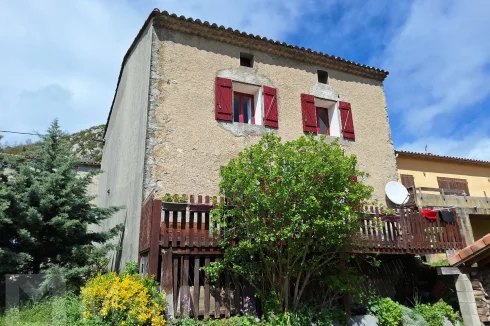Buying and Selling French Property in Sterling
Friday 08 November 2019
Is it possible to use Sterling in a French property sale transaction?
A surprising number of UK sellers and buyers express interest carrying out the sale of property in France with payment made in Sterling.
The main reason is normally to give certainty to the exchange rate in the transaction, although for buyers it is possible to do so through the purchase of a forward currency contract.
If Sterling is used the exchange rate must be agreed by the parties before the contract is signed as the contract and purchase deed must indicate the agreed sale and purchase price in euros, with the corresponding GBP amount based on an agreed exchange rate.
In practice, few notaires are prepared to undertake the conveyancing process in this manner, due to the lack of security in the transfer of funds direct to the vendors UK bank account.
Where they are prepared to consider it, they will insist that the Sterling funds pass through the client account of a UK firm of solicitors regulated by the Solicitors Regulation Authority, the independent body created by the Law Society to regulate solicitors.
Even here, the UK solicitors cannot simply facilitate the transfer of funds between the parties as their own regulations prevent them from offering a banking facility unless they are also providing some level of legal advice and assistance to one party involved in the transaction in France.
In addition, not all of the transaction can be carried out in Sterling:
- Where there is a mortgage outstanding on the property the notaire will almost certainly insist that the transaction is in euros.
- The fees payable to the notaire will also need to be paid directly into their account in euros.
- In addition, if capital gains taxes are payable, the sum due will need to be paid directly into the notaires client account in euros.
There also remains the problem of unforeseen charges being discovered on the title subsequent to the title search being carried out.
As the notaire will generally receive the search result approximately two weeks before completion it is possible, for instance, that the seller may owe unpaid taxes on the property, when the tax office would then place a last-minute charge on the property.
If completion then takes place the existence of the charge would only come to light once the notaire lodges the application to register the sale deed.
The notaire would then have to try to get the necessary funds back from the sellers to clear the charge.
If the sellers fail to respond, the notaire would not be able to clear the charge from the title.
In such circumstances, provided the purchase price has passed through the notaire’s account, their insurer would pay out to clear the charge.
However, if the purchase price has not passed through their account the insurer would not indemnify them.
Barbara Heslop of French property solicitors Heslop and Platt states that: “In order to reduce the risk, we ask the notaire to obtain an up to date statement ('bordereau de situation') from the sellers’ local tax office confirming that all local taxes have been paid up to date and that there are no arrears.
If a charge is subsequently found to have been registered against the seller’s title, a UK solicitors professional indemnity insurance will not protect the buyer because this is something that is outside of the control of their solicitor.”
Thank you for showing an interest in our News section.
Our News section is no longer being published although our catalogue of articles remains in place.
If you found our News useful, please have a look at France Insider, our subscription based News service with in-depth analysis, or our authoritative Guides to France.
If you require advice and assistance with the purchase of French property and moving to France, then take a look at the France Insider Property Clinic.





